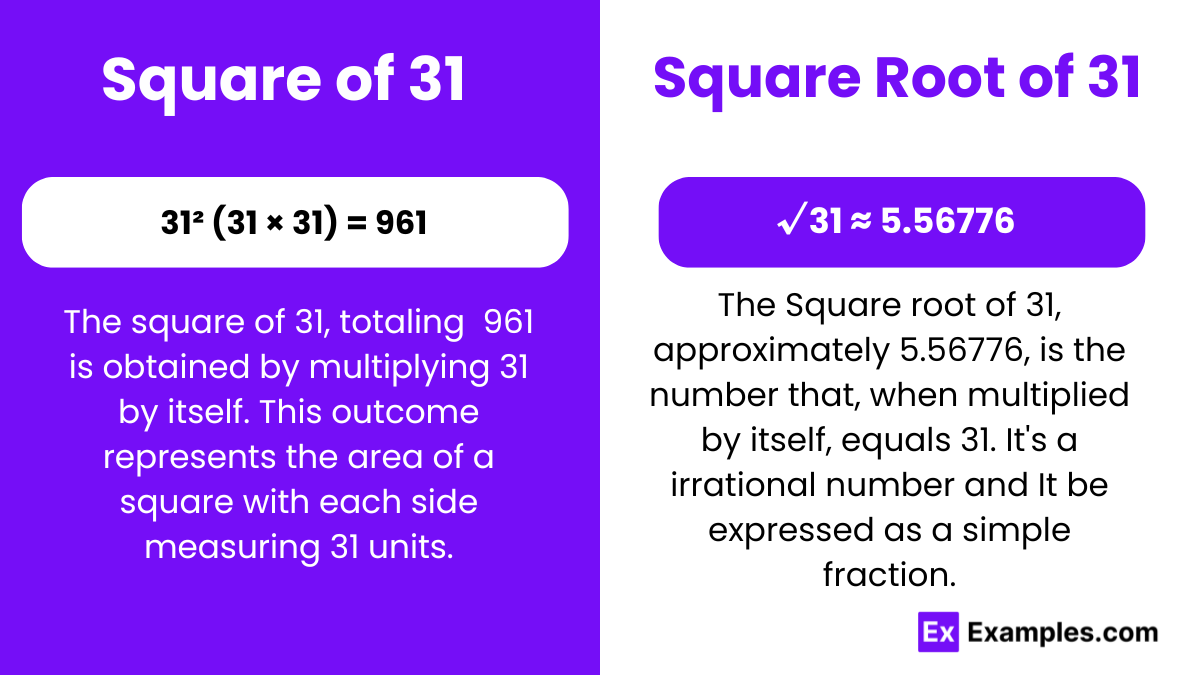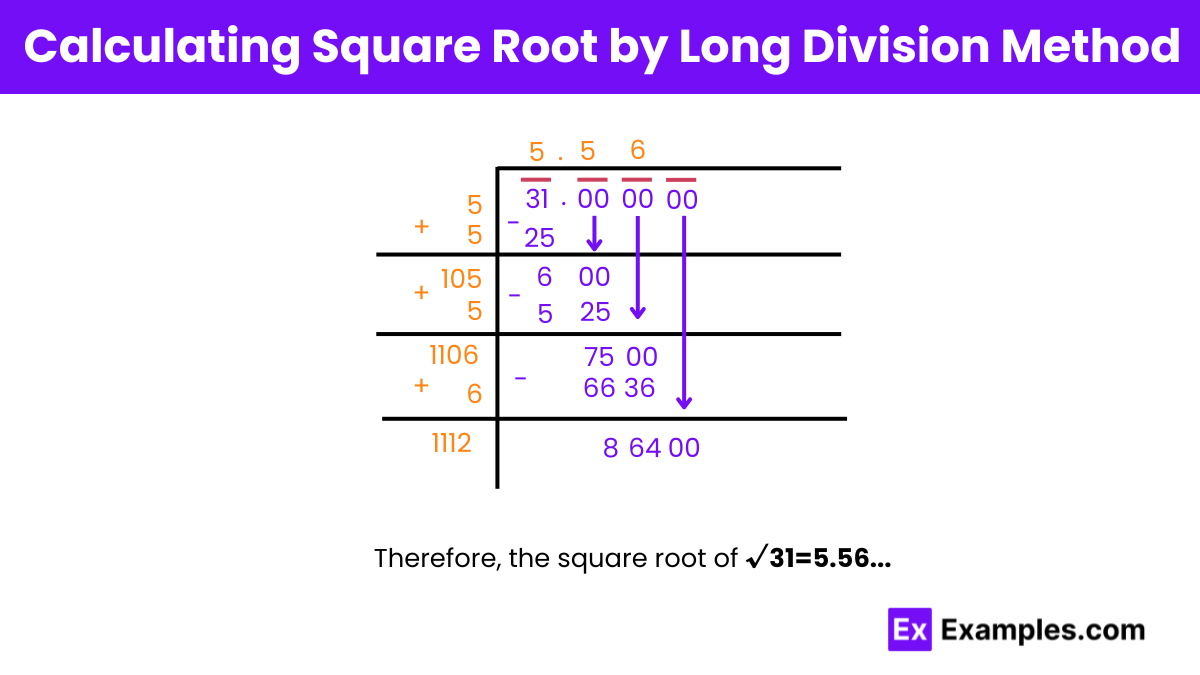What is the square of 31?
841
961
900
729


Within the realm of algebraic mathematics, squares and square roots are pivotal concepts. Squaring a number, like 31, involves multiplying it by itself, yielding 961. This operation is foundational, crucial in exploring rational and irrational numbers. Understanding these basics enriches comprehension of mathematical relationships and patterns. Squares reveal inherent properties of numbers, while square roots unravel complex numerical mysteries. These concepts illuminate mathematical landscapes, guiding explorations into fractional territories. Mastery of squares and square roots empowers mathematicians to navigate diverse mathematical terrains, uncovering the elegance and complexity woven within algebraic frameworks.
The square number 31 equals 961, derived by multiplying 31 by itself, a fundamental operation in algebraic mathematics, revealing inherent properties of numbers.
The square root of 31 is approximately 5.56776. This fundamental operation in mathematics uncovers the value that, when multiplied by itself, equals 31.
Exponential Form : 31^½ or 31^0.5
Radical Form : √31
Rational Numbers: Rational numbers are those that can be expressed as the quotient of two integers, where the denominator is not zero. In other words, they can be written as fractions of the form a/b where (a) and (b) are integers and (b ≠ 0). Rational numbers include integers and fractions. Examples of rational numbers include 1/2, -3, and 5/7.
Irrational Numbers: Irrational numbers cannot be expressed as fractions of integers. Their decimal representations are non-repeating and non-terminating. These numbers cannot be represented as finite or repeating decimals. Examples of irrational numbers include the square roots of non-perfect squares like √2, √3, and √5, as well as transcendental numbers like π.
In essence, rational numbers can be expressed as fractions with finite or repeating decimals, whereas irrational numbers cannot be represented in this way, having non-repeating, non-terminating decimal expansions.

Step 1: Starting from the right, pair up the digits 31 by placing a bar above them. We will also pair the 0s in decimals from left to right.
Step 2: Think of a number whose square is less than or equal to 31. In this case, that number would be 5.
Step 3: Divide 31 by 5. We will get the quotient as 5 and the remainder as 6.
Step 4: Drag a pair of 0s down and place it next to 6 to make the new dividend 600.
Step 5: Double the divisor (5), resulting in 10. Now, we need to find a value of X such that 10X × X is less than or equal to 600. The value that fits is 105, since 105 × 5 = 525, which is less than 600.
Step 6: Place the number 5 in the quotient after a decimal point. The new divisor for the next division will be 105 + 5, which equals 110.
Step 7: Drag another pair of 0s down to continue the process. Now the dividend is 7500. Repeat the process to find the next digits.
By repeating these steps, you can continue calculating the decimals of the square root of 31.
A perfect square cannot be expressed as the product of an integer multiplied by itself. Therefore, since the square root of 31 is not a whole number, 31 is not a perfect square.
No, the square root of 31 cannot be simplified further because 31 is a prime number and does not have any perfect square factors other than 1.
No, the square root of 31 cannot be expressed as a fraction because it is an irrational number.
In geometry, the square root of 31 helps determine distances, such as side lengths in right triangles and diagonals of rectangles, using the Pythagorean theorem and other geometric calculations.
Text prompt
Add Tone
10 Examples of Public speaking
20 Examples of Gas lighting
What is the square of 31?
841
961
900
729
Which of the following is closest to the square root of 31?
5.4
5.5
5.6
5.7
Identify the square root of 961.
29
30
31
32
Find the square root of 31².
31
961
30
32
The square root of which of the following numbers is closest to 5.57?
30
31
32
33
What is the approximate value of the square root of 31 to two decimal places?
5.55
5.56
5.57
5.58
Which number is a perfect square?
961
31
124
729
Find the square of the number that gives 31 when squared.
31
961
5.57
60.25
Which of the following numbers is the square root of a number close to 961?
29
30
31
32
What is the square root of the square of 31?
961
31
60
124
Before you leave, take our quick quiz to enhance your learning!

